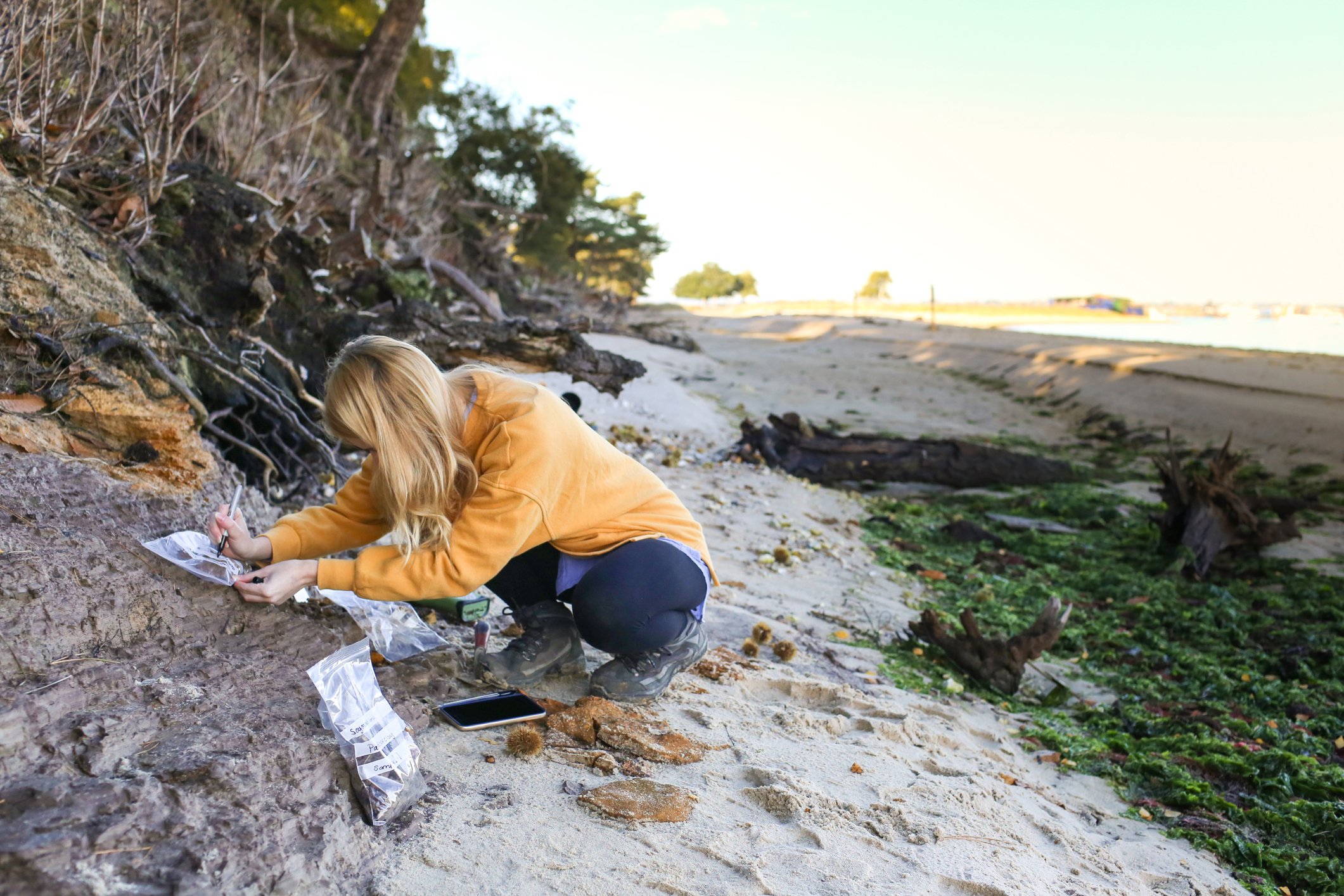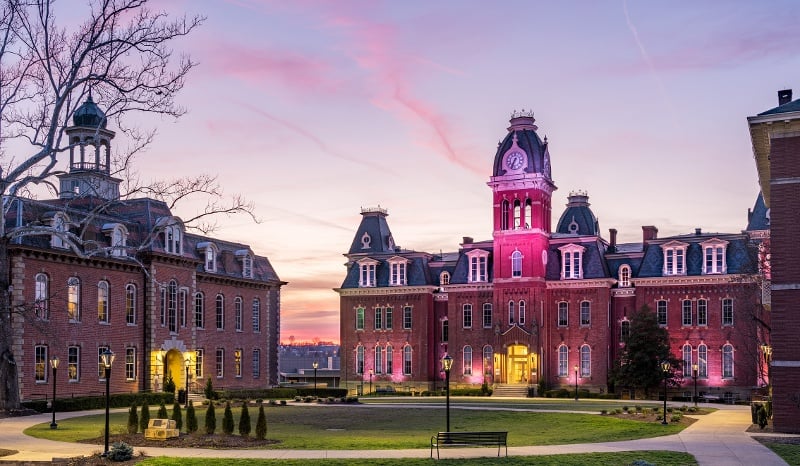
Three West Virginia University graduate students spent the 2018-2019 academic year as Graduate Student Climate Adaptation Partners scholars, developing a digital library and webinar series based on their climate change research.
Brooke Eastman in the Eberly College of Arts and Sciences and Gordon Dimmig and Sarah Mills from the Davis College of Agriculture, Natural Resources and Design represented WVU in the GradCAP program, which brought together 15 students from six Northeast Climate Hub partner universities located from Maine to West Virginia.
West Virginia University is one of the few prestigious R1 institutions in the nation, and WVU's researchers are dedicated to combating climate change, which is why they're thinking outside the box and developing innovative ways of doing so.
Research on Climate Change and Forest Health
Brooke Eastman, a biology graduate student, is conducting research on climate change and forest health.
Her research focuses on the effects of acid rain on forest health in West Virginia. Her research is conducted at the Fernow Experimental Forest in Parsons, about a two-hour drive south of Morgantown. Eastman is part of a 30-year experiment taking place in the forest that simulates acid rain on one section of the forest and compares it to a control section to chart the long-term impact of acid rain on the area.
“I’m interested in how acid rain impacts the ecosystem services that forests provide. Ecosystem services are anything the natural world provides that benefits humans,” Eastman said. “Forests provide recreational and economic opportunities from timber to tourism. Forest soil actually cleans our water, and trees store a lot of carbon. That’s why I’m really interested – the more carbon stored in the forest, the less there is in the atmosphere.”
As part of GradCAP, Eastman presented her research via a public webinar. She believes the experience helped facilitate an opportunity for her and the other students to network with a group of scientists, researchers and other industry professionals.
“It has been really amazing to connect with other people similar to me – graduate students who are doing research and are passionate about climate adaptation,” Eastman said. “We put our voices together and told the USDA and the broader scientific community that we, a team of emerging leaders, are also part of the team seeking solutions to climate adaptation.”
Research on Climate Change and Flower/Fruit Production
Sarah Mills, a plant and soil sciences graduate student from East Windsor, New Jersey, is studying the effects of climate change on flower and fruit production of horticultural crops.
“It was exciting to network with other graduate students,” she said. “At the GradCAP workshop, I met many colleagues who are working on climate change, and we all have different research areas and perspectives.”
At the WVU Greenhouse, Mills is investigating the impact of temperature on the interactions between blueberry flowering and bees, their pollinator. So far, she has found that blueberry flowering is sensitive to temperature increases – reductions in flower quantity result in reductions in fruit production.
In another study, Mills is using petunias to examine how simulated climate through factors like water deficit stress, elevated temperature and carbon dioxide exposure affect flower development.
“These projects address the questions of how climate change affects crop production. To my knowledge, there has been no study conducted using an incremental temperature in blueberries or applying three environmental factors at the same time in petunias or any other crop,” Mills said. “We hope to show how climate change, either small increases in temperature or combinatorial effects of water, temperature and carbon dioxide, impact our crop production.”
Research on Climate Change and Songbird Communities
Gordon Dimmig is a wildlife and fisheries resources student from Elizabethtown, Pennsylvania. His research examines long-term changes in songbird communities from the central Appalachian Mountains.
Dimmig used a historic dataset of thousands of bird surveys conducted between 1993 and 2018 to determine how 16 songbird species are moving along the elevation gradient and the potential effects of climate change. He found that five species expanded upward, five species moved downward and six species remained the same, likely due to changes in forest conditions and population trends.
“Mountainous areas have high bird diversity, and many breeding birds in the central Appalachians have very restricted distributions. Climate change and other changes to the environment may cause these species to become further restricted in smaller mountaintop patches,” Dimmig said. “There is still a lot of uncertainty about how wildlife populations and birds will respond to changing climate and environmental conditions, so this research helps to determine what we are observing in our bird communities. It’s very unique research because long-term data is scarce, so having 26 years of data is very valuable."
Dimmig has been part of GradCAP for the past two academic years.
“I’ve been able to broaden my understanding of climate-related issues and become more well-rounded in my knowledge about all sorts of research in agriculture, forestry and wildlife throughout the northeast,” he said. “I also enjoyed GradCAP because it’s a group of students from many different universities, so I was able to create connections with a unique cohort of researchers that would have been difficult to do on my own.”
WVU is dedicated to meaningful research.
Are you interested in learning more? If so, we hope you'll request more information today! Also, if you have questions about the below topics, we have resources to help you there too!
- Securing a graduate assistantship
- Pursuing an advanced STEM education
- Choosing a graduate school
- Financing graduate school
- GRE test prep
- Making a career change
- Enrolling in graduate school online
- The value of R1 institutions
- Obtaining a graduate degree in public health
Note: This article was originally published on WVU Today on May 2, 2019.
Explore the importance of research and the value of R1 Institutions with our digital resource page — A Guide to Research-Based Graduate Programs at West Virginia University!









